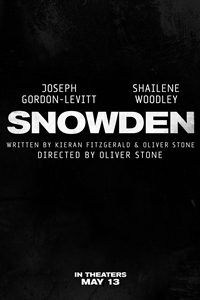 Oliver Stone’s ‘Snowden’ is a valuable ‘Citizenfour’ companion piece
Oliver Stone’s ‘Snowden’ is a valuable ‘Citizenfour’ companion piece
Directed by: Oliver Stone
Written by: Kieran Fitzgerald, Oliver Stone
Starring: Joseph Gordon-Levitt, Shailene Woodley, Rhys Ifans, Nicolas Cage, Zachary Quinto, Melissa Leo, and Tom Wilkinson
“Snowden” – “Be afraid. Be very afraid.”
This ominous quote originates from David Cronenberg’s gruesome and nerve-racking horror film “The Fly” (1986), and it refers to a budding technology causing terrible, unintended consequences. Specifically, a scientist’s experimental teleportation device inadvertently turns him into a monster, a half human/half housefly, and therefore, my particular use of the phrase “unintended consequences” becomes one of the top five understatements in recorded history.
(Hey, everything worked swimmingly, but now, you are a 6-foot insect.)
Well, after watching Oliver Stone’s “Snowden”, the audience learns to be afraid of a different kind of monster. It is the wildly advanced technology that the CIA and NSA use to collect oceans of worldwide information, including Americans’ personal data from cellphones, laptops, emails, and instant messages.
If there is one director who can make a film about Edward Snowden - the young man who, in 2013, famously or infamously (depending upon your point of view) broke the story of the previously-mentioned U.S. technological eavesdropping – it is Stone. Some of Stone’s most celebrated films highlight unbalanced power between massive institutions and ordinary Americans, including “Platoon” (1986), “Wall Street” (1987), “Born on the Fourth of July” (1989), and “JFK” (1991). Although “Snowden” is not as strong as these films, it fits into the same prized bucket of his “public service” movies.
As a public service to filmgoers, Joseph Gordon-Levitt plays the title role. Snowden - an unassuming, soft-spoken and physically slight man in his 20s – projects an image of an accountant from a large bank or a small, near-invisible human spoke in a giant corporate wheel. On the other hand, Snowden is wildly intelligent and, sometimes, unwittingly develops a few of the government’s most complicated and wide-reaching surveillance programs.
Gordon-Levitt perfectly falls into this role, and his performance conveys Snowden’s unpretentious, ordinary persona with a massive intellect percolating just beneath the surface. The only piece of Gordon-Levitt’s work that feels amiss is Snowden’s voice, as he seemingly speaks two octaves lower than his own. It does distract during the first 15 minutes, but then I started becoming accustomed to it and then no longer noticed.
What I did notice is the film’s structure and its purposeful departure from the 2014 Oscar winning documentary, “Citizenfour”, which captured several incredibly revealing interviews of Edward Snowden – by journalists Glenn Greenwald and Laura Poitras - from a small Hong Kong hotel room in 2013. In the doc, Snowden – a former CIA and NSA employee – explains how the government spies on its own people through the convenient electronic devices which we hold most dear.
I walked away from that film with three general takeaways. The first two are the massive scope of the actual surveillance programs and the wholly-invasive methods used to collect our personal data. When Snowden explains the programs and methods in the most surreal, Orwellian fashion, his words sent shivers down my spine. The third takeaway is the supreme, personal sacrifice that Snowden makes by revealing these highly-kept secrets in order to inform the American people and a worldwide audience.
Through Snowden’s own words, “Citizenfour” reveals his personal sacrifice, but the audience does not discover too many details of his personal backstory. Stone’s film, however, presents Snowden’s private and professional bio from 2004 to 2013, and it follows him on his international ride within the highest levels of public power. We see him rise to the top as one of the brightest technical minds within the CIA and NSA, and the more clearance that he receives, the more nefarious secrets – like a completely frightening program called XKEYSCORE - are unveiled to him and the audience.
The picture surrounds him with a terrific supporting cast, including Snowden’s CIA instructor (Rhys Ifans), mentor (Nicolas Cage) and longtime girlfriend (Shailene Woodley). Cage’s role is small, but insightful. It is nice to see him play someone more controlled and conventional, rather than trying to gun down a dingy troop of baddies or run around like a maniac. Woodley’s part as Lindsay shows a grounding and calming influence on Edward, as she lives outside the red tape stickiness of his day job.
Stone’s dramatization generally works because of the performances and the illicit material to pull from, but the picture does not really feel like a thriller. Snowden labors in front of computers for agencies immersed in spy games, but he is not James Bond. He is a mild-mannered, young guy who feels guilt when the system figuratively chokes innocent victims and compromises hundreds of millions of others. Instead, the movie engages as a steady reveal of many secrets which informed audience members may already know, but it also offers a character study of a brave man who we do not know, outside of his courageous (or traitorous) act. As one can guess, it is not difficult to determine Stone’s feelings about Snowden’s actions.
“Snowden” is effective as a standalone picture, but I believe it works best as a companion piece with “Citizenfour”. I recommend that audiences see the 2014 documentary first in order to receive the best experience of Stone’s film. “Snowden” is a much deeper dive into the inner workings of the man, and in order to complete this bio, the film also intertwines the Hong Kong interviews with Greenwald (Zachary Quinto) and Poitras (Melissa Leo).
Snowden’s interviews and hiding place are fascinating theatre, as they provide context for the incredibly high stakes. At times, however, these scenes in “Snowden” feel a little incomplete. For example, Greenwald lashes out at The Guardian (UK) editors for their slightly proposed delay of their news story. At that moment, it seems like we missed some key minutes which could be sitting on the cutting room floor, because Greenwald blowing up feels out of character and out of place. The movie does not spend enough time with the reporters who are key to Snowden’s overall story, and that is one example why “Citizenfour” almost feels like a required prerequisite.
Together, these pictures chronicle Edward Snowden’s remarkable journey, his findings and a technological horror show which “watched (or continues to watch) over” the masses.
Yes, be afraid. Be very afraid. (3/4 stars)
Jeff – a member of the Phoenix Critics Circle – has penned film reviews since 2008 and graduated from ASU’s Walter Cronkite School of Journalism. Follow Jeff and the Phoenix Film Festival on Twitter @MitchFilmCritic and @PhoenixFilmFest, respectively.

 Blair Witch
Blair Witch
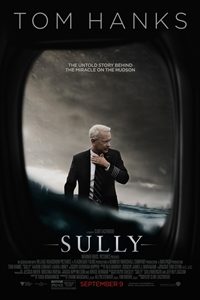 Hollywood legend Clint Eastwood’s 35th directorial effort, “Sully” (3/4 stars), arrives in theatres on Friday, Sept. 9 with Tom Hanks in the title role. The film chronicles U.S. Airways pilot Chesley ‘Sully’ Sullenberger’s heroic landing on the Hudson River in January 2009. With another solid Eastwood film in theatres, this seems like a perfect time reflect upon his work. Although I would love to compile a Top 20, 17 or 15 list, my pragmatic nature and movie critic tendencies “require” me to somehow limit the number of movies to 10, so here are my Top 10 films directed by Clint Eastwood.
Hollywood legend Clint Eastwood’s 35th directorial effort, “Sully” (3/4 stars), arrives in theatres on Friday, Sept. 9 with Tom Hanks in the title role. The film chronicles U.S. Airways pilot Chesley ‘Sully’ Sullenberger’s heroic landing on the Hudson River in January 2009. With another solid Eastwood film in theatres, this seems like a perfect time reflect upon his work. Although I would love to compile a Top 20, 17 or 15 list, my pragmatic nature and movie critic tendencies “require” me to somehow limit the number of movies to 10, so here are my Top 10 films directed by Clint Eastwood.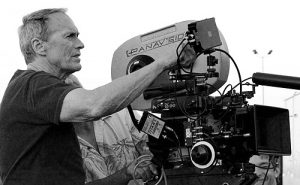 some Union fighters burn his house and kill his wife and son. With nothing to live for, he joins a group of Confederates, and soon after, he finds himself on his own and an outlaw. In a film that truly showcases everything about the American Western, Wales covers a winding story from Missouri to Texas and partners with – at various times – a teenager, two Native Americans and a family from Kansas. Eastwood mixes good fun with plenty of gunfights, as Wales offers a barrel full of memorable lines, countless visuals of his chewing tobacco spit, dead bodies in his wake, and - possibly - a reason to live.
some Union fighters burn his house and kill his wife and son. With nothing to live for, he joins a group of Confederates, and soon after, he finds himself on his own and an outlaw. In a film that truly showcases everything about the American Western, Wales covers a winding story from Missouri to Texas and partners with – at various times – a teenager, two Native Americans and a family from Kansas. Eastwood mixes good fun with plenty of gunfights, as Wales offers a barrel full of memorable lines, countless visuals of his chewing tobacco spit, dead bodies in his wake, and - possibly - a reason to live.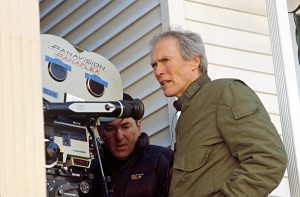 convict from a Huntsville, Texas prison. On the morning after Halloween in 1963, Butch (Costner) and another con kidnap an 8-year-old boy named Phillip (T.J. Lowther). After Butch dumps his partner, the two drive across the state with Texas Ranger Red Garnett (Eastwood) on their tail. The movie volleys between Red and Butch, and it soon concocts a semi-case of Stockholm syndrome for Phillip and the audience. Butch treats Phillip with esteem and kindness, so Costner does not wind up playing a complete bad guy, but Red is an empathetic figure as well. With an occasional protagonist and a fulltime protagonist on opposite sides of the law, “A Perfect World” reminds us that we do not live in one.
convict from a Huntsville, Texas prison. On the morning after Halloween in 1963, Butch (Costner) and another con kidnap an 8-year-old boy named Phillip (T.J. Lowther). After Butch dumps his partner, the two drive across the state with Texas Ranger Red Garnett (Eastwood) on their tail. The movie volleys between Red and Butch, and it soon concocts a semi-case of Stockholm syndrome for Phillip and the audience. Butch treats Phillip with esteem and kindness, so Costner does not wind up playing a complete bad guy, but Red is an empathetic figure as well. With an occasional protagonist and a fulltime protagonist on opposite sides of the law, “A Perfect World” reminds us that we do not live in one.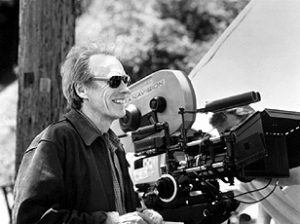 – Sean Penn and Tim Robbins won Oscars for Best Actor and Best Supporting Actor, respectively, in Eastwood’s dark crime tale filled with massive Shakespearean themes, when three childhood friends’ (Penn, Robbins and Kevin Bacon) lives intersect as adults under brutal circumstances. In chilly Boston, a coed is found dead, and the three previously-mentioned men approach the incident from very different perspectives, while the tightly-wound and complicated murder investigation pushes forward. An all-star cast – including, Laurence Fishburne, Marcia Gay Harden and Laura Linney – complete a mesmerizing experience which brings constant thoughts friendships, loyalties and how the sins of the past impact the present. The film’s most memorable line – “The last time I saw Dave” - will haunt you for years.
– Sean Penn and Tim Robbins won Oscars for Best Actor and Best Supporting Actor, respectively, in Eastwood’s dark crime tale filled with massive Shakespearean themes, when three childhood friends’ (Penn, Robbins and Kevin Bacon) lives intersect as adults under brutal circumstances. In chilly Boston, a coed is found dead, and the three previously-mentioned men approach the incident from very different perspectives, while the tightly-wound and complicated murder investigation pushes forward. An all-star cast – including, Laurence Fishburne, Marcia Gay Harden and Laura Linney – complete a mesmerizing experience which brings constant thoughts friendships, loyalties and how the sins of the past impact the present. The film’s most memorable line – “The last time I saw Dave” - will haunt you for years.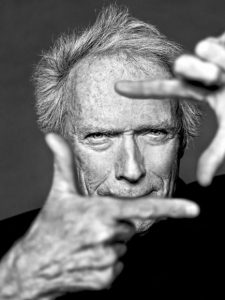 Best Director, Best Supporting Actor for Gene Hackman, and Best Film Editing and proved – along with “Dances with Wolves” (1990) – that the genre can win the Academy’s top prize. Eastwood delivers a prized role as well as William Munny, an aging cowboy who takes one last bounty hunter job after years of living a clean life. Munny frequently speaks of his violent past, but the audience presently sees a cordial and respectful man, so any previous sinister dealings seem either deeply buried or simply exaggerated. In the movie’s final act, however, Sheriff Little Bill Daggett (Hackman) tests Munny’s patience with potentially explosive consequences. Most everything in the town of Big Whiskey, Wyo. (actually filmed in Alberta, Canada) feels bleak and cold, and the tones match Munny’s job of attempting to kill two cowboys for a group of prostitutes. In this world, no one is completely innocent, and Munny mentions to one of his partners in passing, “We all have it coming, Kid.” Not only does Little Bill have it coming, but so does the Kid, the targeted cowboys, Munny’s other partner named Ned (Morgan Freeman), and Munny himself. Munny’s past sins – unfortunately – are just skin-deep, and even though his wife forgave his past misdeeds, to him, they remain unforgiven.
Best Director, Best Supporting Actor for Gene Hackman, and Best Film Editing and proved – along with “Dances with Wolves” (1990) – that the genre can win the Academy’s top prize. Eastwood delivers a prized role as well as William Munny, an aging cowboy who takes one last bounty hunter job after years of living a clean life. Munny frequently speaks of his violent past, but the audience presently sees a cordial and respectful man, so any previous sinister dealings seem either deeply buried or simply exaggerated. In the movie’s final act, however, Sheriff Little Bill Daggett (Hackman) tests Munny’s patience with potentially explosive consequences. Most everything in the town of Big Whiskey, Wyo. (actually filmed in Alberta, Canada) feels bleak and cold, and the tones match Munny’s job of attempting to kill two cowboys for a group of prostitutes. In this world, no one is completely innocent, and Munny mentions to one of his partners in passing, “We all have it coming, Kid.” Not only does Little Bill have it coming, but so does the Kid, the targeted cowboys, Munny’s other partner named Ned (Morgan Freeman), and Munny himself. Munny’s past sins – unfortunately – are just skin-deep, and even though his wife forgave his past misdeeds, to him, they remain unforgiven. This Crusoe story, ‘The Wild Life’, is visually pleasant but feels lost
This Crusoe story, ‘The Wild Life’, is visually pleasant but feels lost
 Complete Unknown
Complete Unknown
 Two solid performances cannot stop ‘The Hollars’ from feeling hollow
Two solid performances cannot stop ‘The Hollars’ from feeling hollow
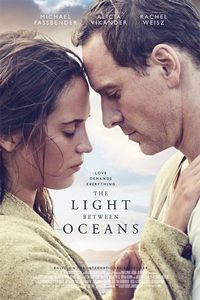 The emotional, beautifully-filmed ‘The Light Between Oceans’ had me at G’day
The emotional, beautifully-filmed ‘The Light Between Oceans’ had me at G’day
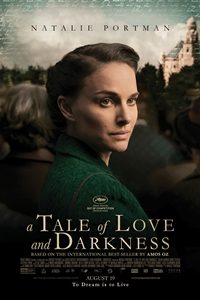 Natalie Portman shines as a master storyteller in “A Tale of Love and Darkness”
By Kaely Monahan
Natalie Portman shines as a master storyteller in “A Tale of Love and Darkness”
By Kaely Monahan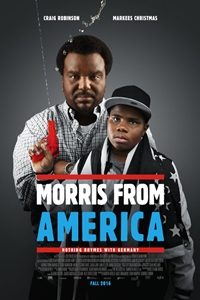 ‘Morris from America’ is a coming-of-age Christmas gift
‘Morris from America’ is a coming-of-age Christmas gift
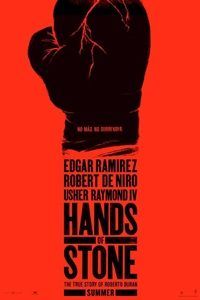 Hands of Stone
Hands of Stone
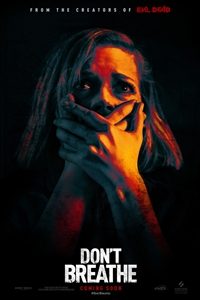 Don’t Breathe
Don’t Breathe
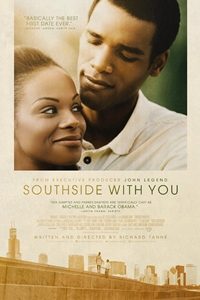 ‘Southside with You’ recalls a very important first date
‘Southside with You’ recalls a very important first date
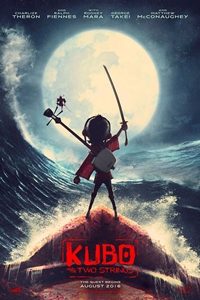 Kubo and the Two Strings – The must-see summer animated feature
By Kaely Monahan
Kubo and the Two Strings – The must-see summer animated feature
By Kaely Monahan Ben-Hur
Ben-Hur
 ‘War Dogs’ carries plenty of comedic and dramatic bite
‘War Dogs’ carries plenty of comedic and dramatic bite
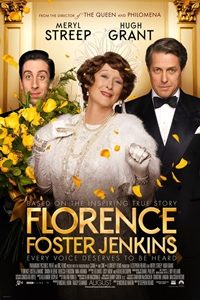 Florence Foster Jenkins: Failure to Success
Florence Foster Jenkins: Failure to Success 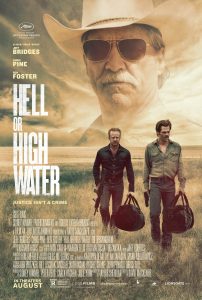 Hell or High Water
Hell or High Water
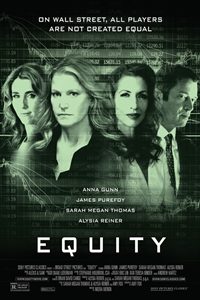 “Equity” raises plenty of capital in a female-driven Wall Street drama
“Equity” raises plenty of capital in a female-driven Wall Street drama








